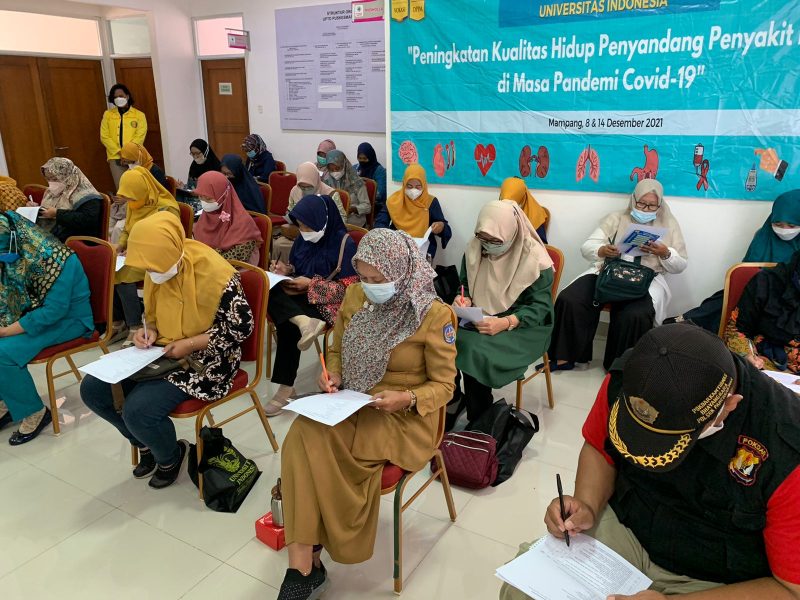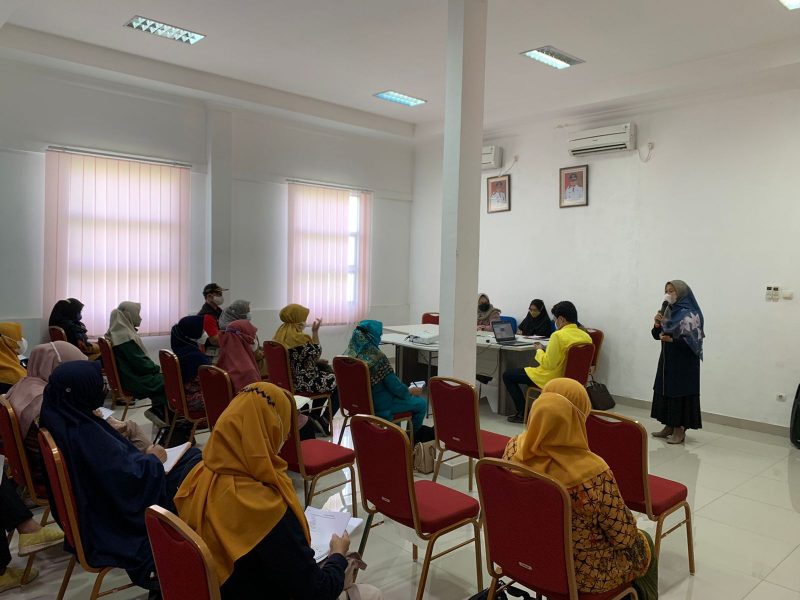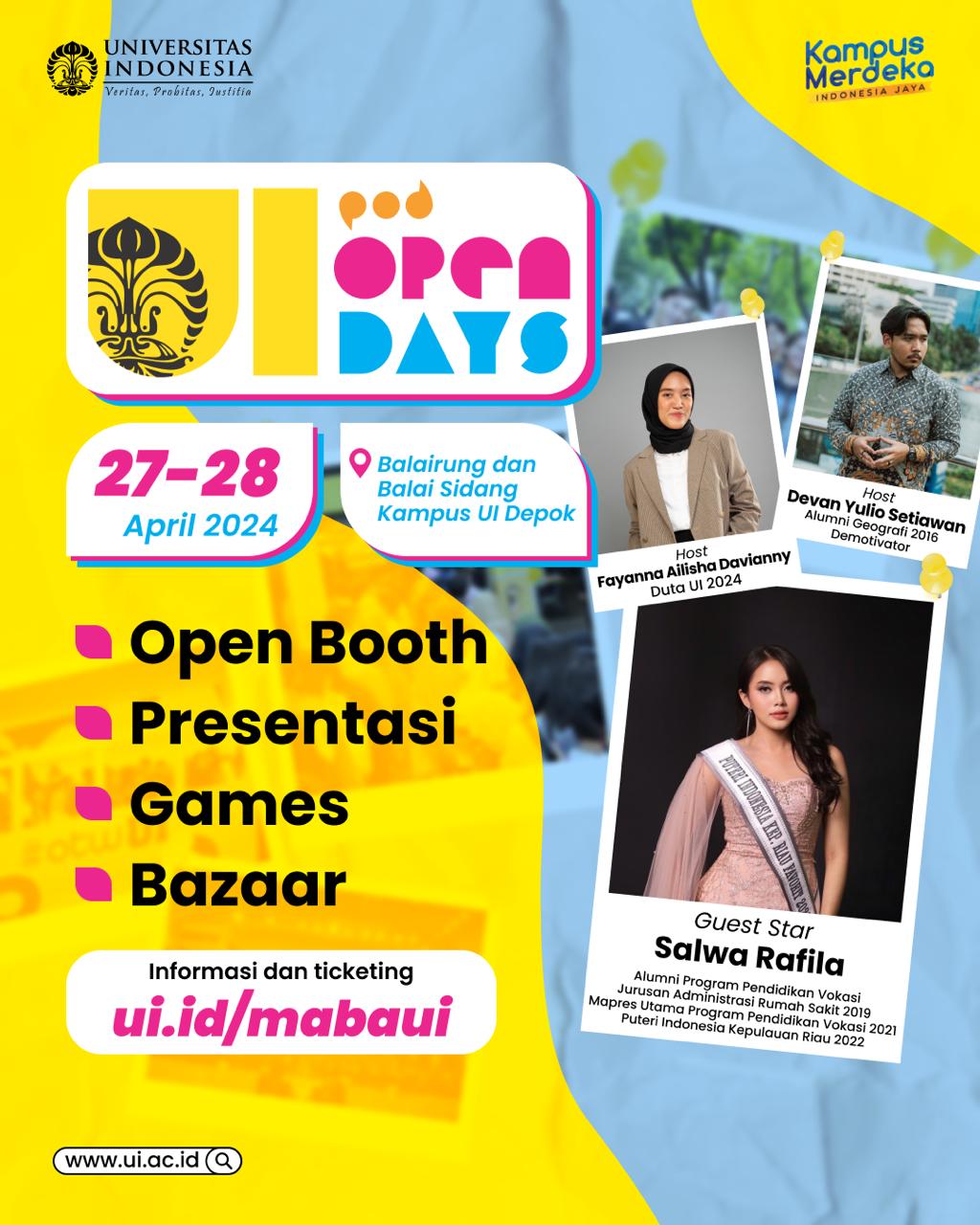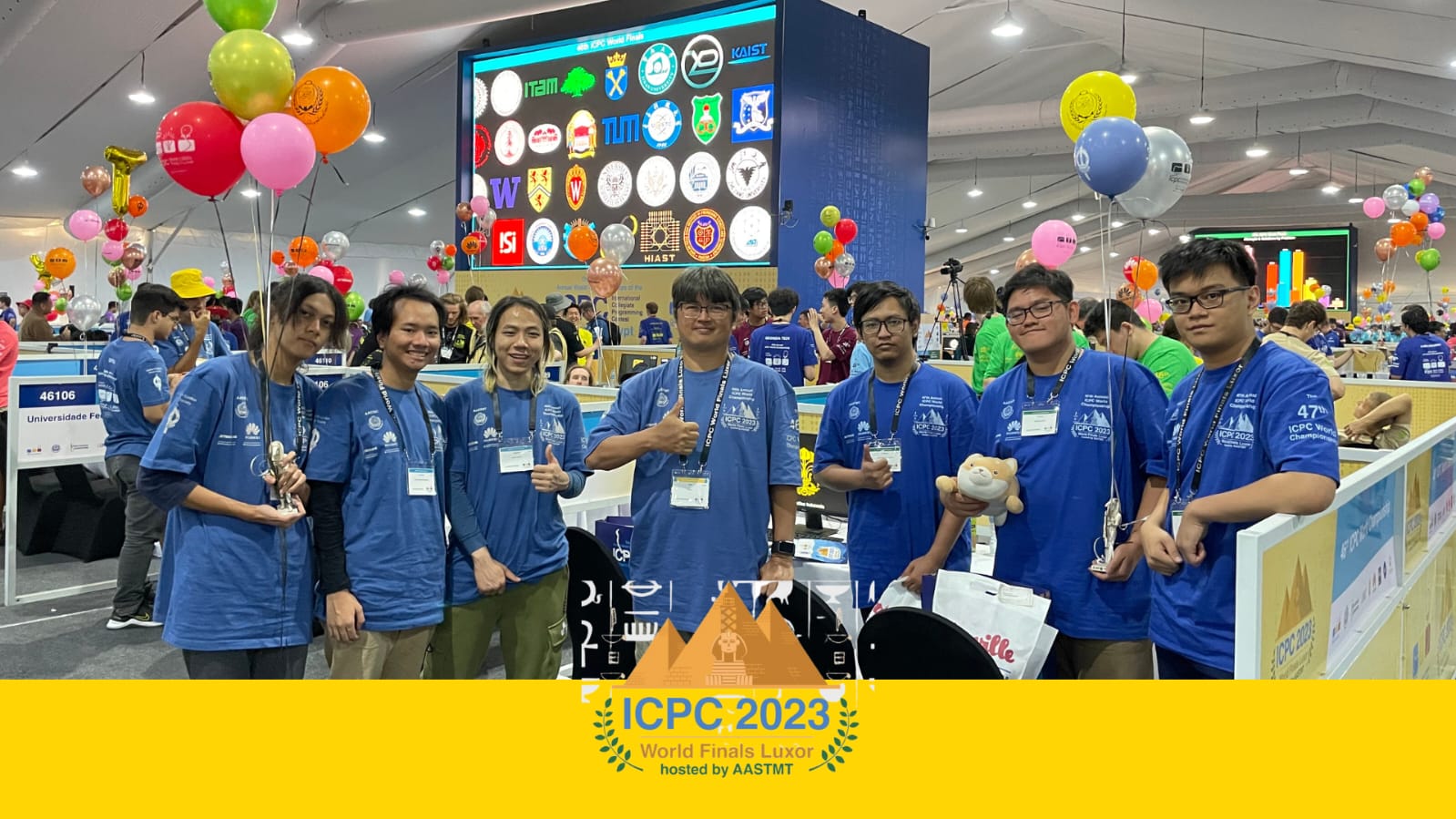
Non-communicable diseases (NCDs) have a slow progression over a long period of time or are chronic. The biggest cause of NCDs is an unhealthy lifestyle. During a pandemic, NCDs also make it easier for someone to be exposed to COVID-19, and their condition will be even more severe.
Therefore, the community service team of the Vocational Education Program, led by Badra Al Aufa, SKM., MKM, a lecturer in the Hospital Administration Study Program, in collaboration with the Mampang Health Center, organized the Training of Integrated Non-Communicable Diseases Development Cadres Post with the theme “Improving the Quality of Life for People with Chronic Diseases during the Covid-19 Pandemic”.
This activity was held on December 14, 2021 at the Mampang Health Center Meeting Room, Pancoran Mas, Depok. The activity was attended by 26 participants who were health cadres and stakeholders in the local area.
This activity was opened by drg. Iva Nur Faridah as Head of Mampang Health Center. In her remarks, she said that this Community Service activity was in line with the Puskesmas program in an effort to increase the coverage of non-communicable disease risk factor screening in the Mampang area.
 “With this training, it is expected that Posbindu PTM cadres can reactivate Posbindu PTM activities by implementing New Habit Adaptation in the form of strict health protocols,” said Badra. This training aims to increase the knowledge and skills of cadres to be able to organize an Training of Integrated Non-Communicable Diseases Development Cadres Post during the Covid-19 pandemic.
“With this training, it is expected that Posbindu PTM cadres can reactivate Posbindu PTM activities by implementing New Habit Adaptation in the form of strict health protocols,” said Badra. This training aims to increase the knowledge and skills of cadres to be able to organize an Training of Integrated Non-Communicable Diseases Development Cadres Post during the Covid-19 pandemic.
Training of Integrated Non-Communicable Diseases Development Cadres Post is one of the Community-Based Health Program which is active in preventing non-communicable diseases, so its presence is very important in early detection and control NCD risk factors in all people aged from 15 years.
Furthermore, Badra explained, “On this occasion we invite the cadres to campaign for the CERDIK (smart) lifestyle which stands for routine health checks, get rid of cigarette smoke, diligent physical activity, balanced diet, adequate rest and manage stress,” said Badra. In this training, participants were provided with material on managing Integrated Non-Communicable Diseases Development Cadres Post with New Habit Adaptation, Detection and Prevention of Non-Communicable Diseases and the Importance of Physical Activity in CERDIK Lifestyle.
Director of Universitas Indonesia (UI) Vocational Education Program, Prof. Dr. Ir. Sigit Pranowo Hadiwardoyo, DEA said that Community Service (Pengmas) is one of the strengths and characteristics of UI Vocational School. “The applied knowledge possessed by lecturers and students makes it very easy to make a real contribution to society. Thus, the knowledge provided in community service activities can be directly applied easily by the community. Like the CERDIK Lifestyle carried out in this activity, hopefully it can be easily remembered and implemented,” said Sigit.



